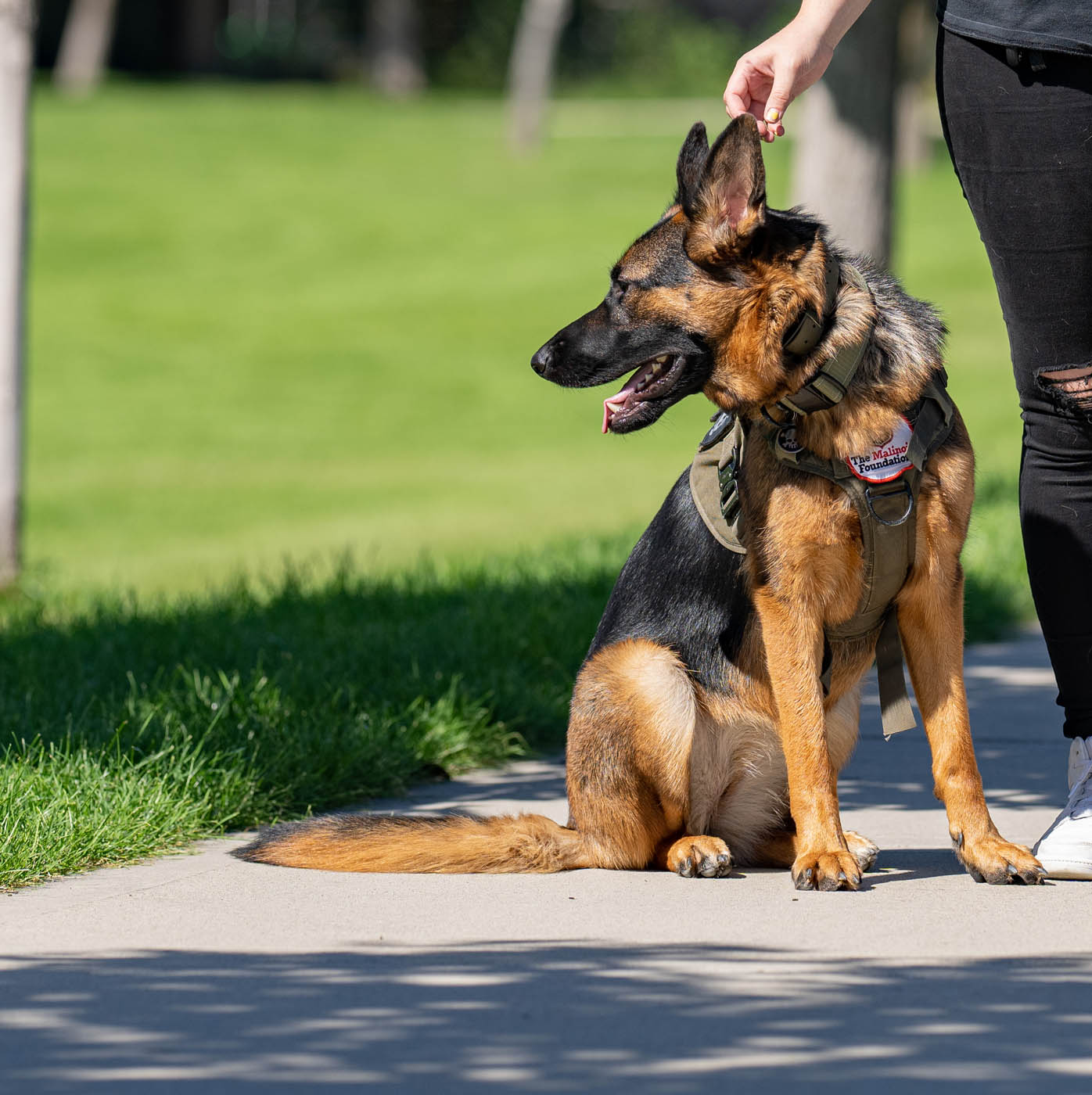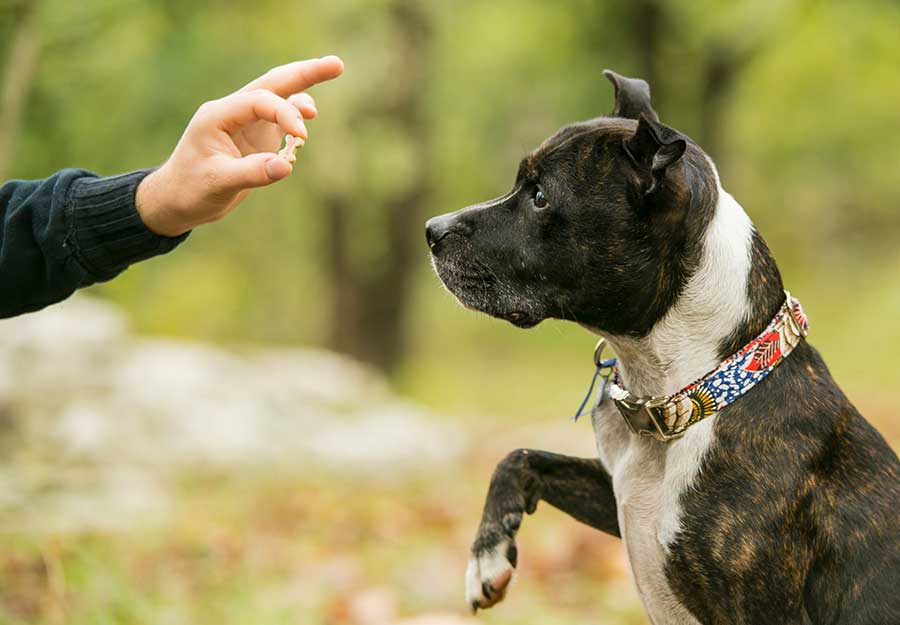Open the Secrets of Effective Dog Training Near Me for a Better Pet
Unlock Your Pet's Prospective: Proven Dog Training Approaches for Success
Effective dog training is a nuanced procedure that hinges on comprehending canine habits and employing medically backed techniques. Dog training. By integrating favorable support, establishing clear commands, and prioritizing socialization, canine proprietors can grow an effective relationship with their family pets. Nonetheless, challenges typically occur that need customized solutions and a client technique. Exploring these confirmed approaches discloses not just the possibility for behavior improvement but also the much deeper bond that can be created in between proprietor and dog. What vital approaches must be taken into consideration to genuinely open your pet dog's potential?
Comprehending Pet Dog Actions
Comprehending pet dog behavior is vital for reliable training and fostering a positive connection in between dogs and their owners. A comprehensive grasp of canine body movement, vocalizations, and social interactions is essential for acknowledging their requirements and feelings. Canines interact mostly with non-verbal cues; for instance, a wagging tail might suggest excitement, while pinned ears can indicate concern or entry.

Additionally, environmental variables play a substantial function fit a canine's actions. Adjustments in regular, brand-new surroundings, or the existence of unfamiliar individuals can result in anxiety or stress and anxiety in dogs. Acknowledging these triggers makes it possible for owners to reduce negative reactions and establish appropriate training strategies.
Inevitably, a deep understanding of canine habits lays the foundation for successful training techniques, enhancing both habits and the general bond between the pet dog and its proprietor. dog training near me. This knowledge is vital for promoting a well-adjusted, happy canine buddy
Positive Reinforcement Strategies
Effective training counts heavily on positive reinforcement strategies, which have actually been shown to generate substantial lead to forming desired actions in pets. This approach involves awarding a dog for showing details habits, thereby enhancing the possibility that these habits will be duplicated. Rewards can take different kinds, including treats, appreciation, toys, or playtime, depending on what motivates the individual pet.

It is important to gradually phase out benefits as the pet dog learns the habits, transitioning to recurring reinforcement. This technique maintains the behavior over time while stopping reliance on constant incentives. By concentrating on favorable support, trainers can grow a trusting connection with their canines, promoting a cooperative and healthy and balanced training atmosphere that enhances general obedience and performance.
Developing Consistent Commands
An essential element of effective canine training is the facility of consistent commands. Consistency in commands is essential for efficient interaction in between the fitness instructor and the pet. When commands are consistent, canines discover to link particular words with preferred actions, which accelerates the training procedure and boosts understanding.
To develop constant commands, it is important that all relative use the exact same terms and gestures. For instance, if a single person makes use of "sit" while one more claims "take a seat," it can create complication for the pet. Select clear, distinctive words for commands and ensure everybody associated with the dog's training complies with these choices.
Reinforce commands with constant method, guaranteeing that the dog obtains ample possibilities to react properly. When a pet efficiently complies with a command, prompt positive support should adhere to.
Last but not least, hold your horses. Developing constant commands takes some time and effort. With commitment and clarity, you will help your pet dog create a strong understanding of expectations, ultimately bring about a well-behaved friend.
Socialization and Exposure
Interacting socially a pet is vital service dog training for promoting a well-adjusted and confident companion. This process entails revealing your dog to a range of atmospheres, people, and other animals to create their social abilities and flexibility. Early socializing, preferably between the ages of 3 to fourteen weeks, is vital, as it prepares for a pet's future habits.
Throughout socialization, goal to give positive experiences in different setups, such as parks, busy streets, and homes with various other animals. Introduce your pet dog to numerous stimulations, including noises, views, and scents, ensuring that each encounter is satisfying. This direct exposure helps reduce concern and anxiousness, paving the means for a more resilient canine.
Engaging in controlled team play sessions with various other pets can also improve social skills, educating your animal appropriate communications and borders. Focusing on socializing will considerably add to your pet's overall happiness and actions throughout their life.
Overcoming Common Educating Challenges

One more constant issue is diversion. Dogs may have a hard time to concentrate in unknown or busy setups. Slowly desensitize your dog to interruptions by starting training in a quiet environment and gradually presenting more stimuli as they come to be efficient (dog training near me). Positive support strategies, such as treats and appreciation, can preserve motivation and emphasis.
Furthermore, behavior concerns like leaping or excessive barking can end up being aggravating. Address these by educating alternate habits, such as resting calmly when greeting visitors. Consistency and perseverance are important; reinforce wanted habits constantly and avoid abuse, which can bring about confusion.
Lastly, identify that each pet dog is one-of-a-kind, and training timelines might differ. Dressmaker your technique to your pet dog's individual demands, and look for expert guidance if essential. With determination and the ideal approaches, getting over these challenges can lead to a trained, pleased canine buddy.
Conclusion
Finally, opening a canine's prospective requires a thorough approach that incorporates an understanding of canine actions, the application of positive support techniques, and the establishment of constant commands. Early socialization and direct exposure to diverse environments further improve a dog's flexibility and confidence. By addressing common training challenges with customized approaches and persistence, a participating and unified relationship between pet pet clicker and handler can be cultivated, ultimately resulting in a mannerly buddy with the ability of thriving in numerous scenarios.
Effective pet dog training is a nuanced process that hinges on comprehending canine habits and utilizing scientifically backed strategies.Understanding dog behavior more info here is important for effective training and promoting a positive partnership in between pets and their owners.Effective training counts greatly on positive support methods, which have been shown to yield substantial outcomes in forming preferred habits in dogs. When commands are consistent, dogs find out to associate certain words with wanted habits, which speeds up the training procedure and enhances understanding.
In conclusion, unlocking a dog's potential necessitates a thorough technique that incorporates an understanding of canine actions, the application of favorable support methods, and the establishment of regular commands.